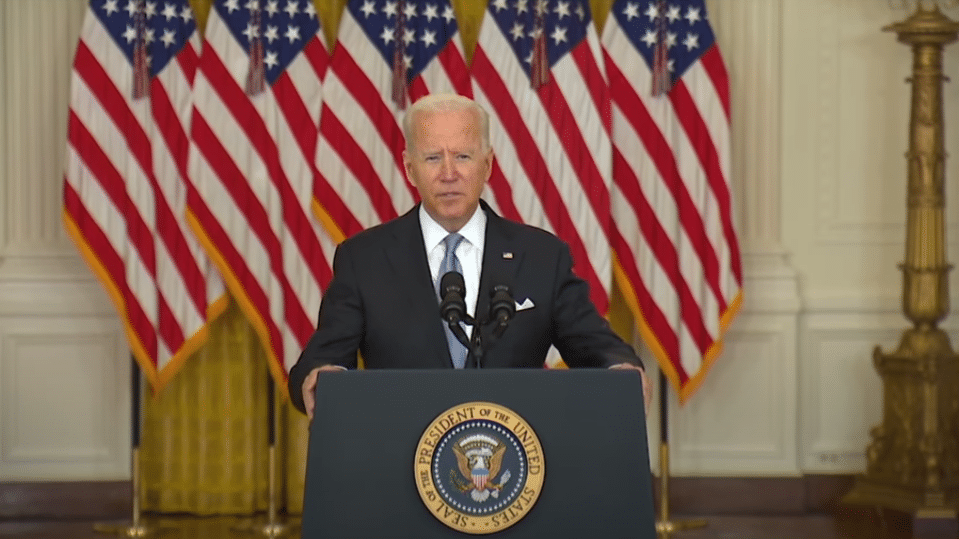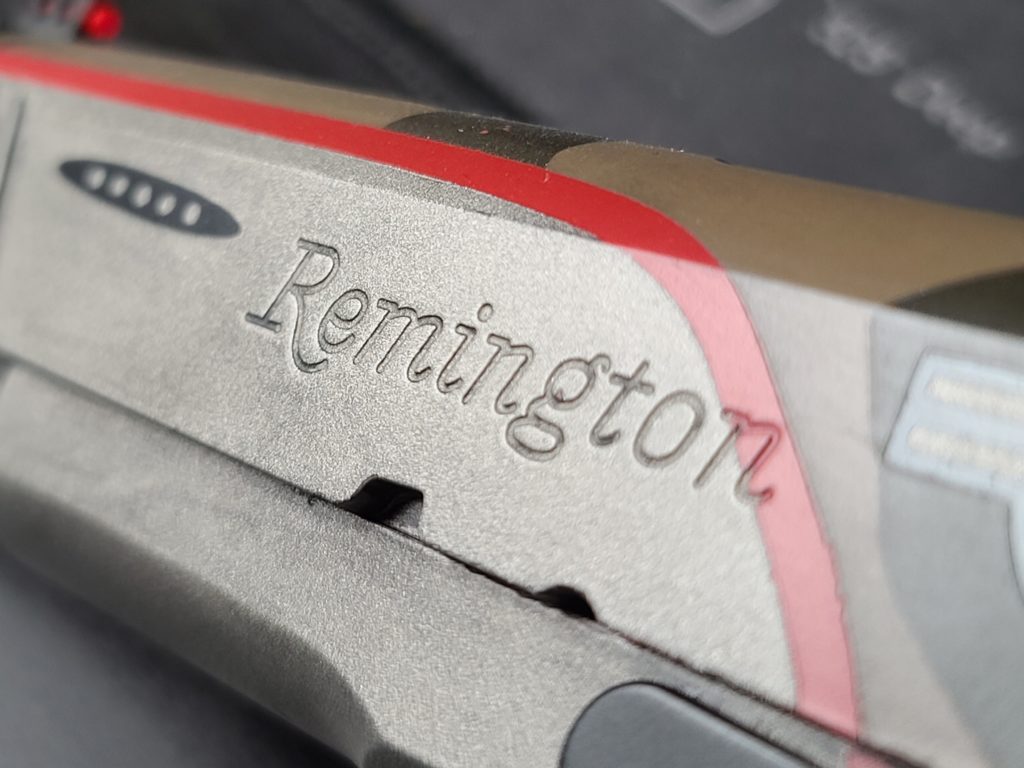This week we’re taking a close look at the continuing public pressure campaign by the major gun-control groups against President Joe Biden (D.). It’s been fairly interesting to watch.
Gun-control groups are understandably upset their agenda has stalled at the federal level and their preferred ATF director nominee was pulled. Still, President Biden seems like an odd target to take out their frustrations. Certainly, his administration could have taken a more direct and public approach to boosting David Chipman after his poor performance at a truncated confirmation hearing.
However, it’s not at all clear that would have done much. Chipman’s baggage was not Biden’s fault and it seems very likely Chipman was more the pick of the gun-control groups who employed him rather than the President who nominated him. So, from the outside at least, it appears the political blame for his failed nomination should be moving in the direction of the gun-control groups.
Instead, it’s headed the other direction and in a very public way. It’s not entirely clear what good that does for the gun-control groups, though, as Contributing Writer Jake Fogleman explores below.
There is one area the gun-control groups clearly have reason to celebrate: this week’s settlement between Remington’s insurers and the Sandy Hook families. I give some of my thoughts on what it all might mean for the industry moving forward. Will insurance rates climb for gun makers? Will this encourage even more suits that try to circumvent federal liability protections for gun companies?
Plus, Cam Edwards of Bearing Arms joins me to add his take too. He has a few insights I didn’t see at first. So, it’s definitely worth a listen.

Analysis: Gun-Control Groups’ Pressure Campaign on Biden Unlikely to Bear Fruit [Member Exclusive]
By Jake Fogleman
Gun-control groups are not happy with the President.
Shortly after President Joe Biden’s (D.) remarks on the anniversary of the 2018 Parkland shooting on Monday, a coalition of groups slammed him for what they say is a lack of significant action on gun-control policy from the President. Leading the charge were members of the group March for Our Lives. Alongside other organizations in the gun-control space, they have begun to publicly pressure President Biden to do more to address gun violence.
But their strategy is unlikely to bear fruit.
President Biden is in short supply of political capital. A new Civiqs poll finds his net approval ratings are underwater in all but three states, creating a precarious environment for himself and other elected Democrats more broadly heading into November’s midterm elections.
Midterms for the party in power are usually a tough proposition anyway. But with the polling as bad as it is, Democrats from vulnerable swing states likely won’t be looking to push the envelope on hot button issues. That makes it all the more unlikely that a contentious fight over a gun bill is going to be coming anytime soon.
The President has still attempted to conjure some legislative support on the issue. On Monday, he called on Congress to bring several gun-control bills to his desk.
“And Congress must do much more — beginning with requiring background checks on all gun sales, banning assault weapons and high-capacity magazines, and eliminating immunity for gun manufacturers,” he said.
Beyond gestures like that, there isn’t much more the President can do to influence Congress into taking up a gun-control bill at this point.
President Biden has already sidestepped Congress on several actions. These actions haven’t received as much attention lately since they are still making their way through the federal bureaucracy. But they are significant moves with serious legal implications for many Americans.
He spearheaded the proposal to expand the ATF’s power significantly in redefining what constitutes a firearm as part of his attempt to go after “ghost gun” kit makers. He is also trying to re-classify guns equipped with popular pistol braces as items that need to be destroyed, turned in, or registered with the ATF under the National Firearms Act. Those actions alone could impact millions of gun owners, potentially subjecting them to federal felony offenses if they are implemented without significant changes—something that could happen right before the midterm elections.
He also attempted to appoint David Chipman, a former agent and current employee of the gun-control group Giffords, to lead the ATF. Major gun-control groups, including Giffords and Everytown for Gun Safety, backed the pick. However, Chipman faced opposition from the entire Republican party and even a number of Democrats over his reverent support for restrictive new gun laws, as well as serious questions about his character.
When his nomination failed, Giffords unleashed public comments attacking the Biden Administration for not doing enough to get him confirmed. Chipman did a media tour where he primarily blamed the administration for not offering enough support during the nomination process.
The gun-control groups continue to be unsatisfied, though. They want the President to do more on his own, including creating an entirely new federal position.
“With the stroke of a pen, President Biden can create an Office of Gun Violence Prevention and appoint a cabinet-level director to lead these efforts,” the groups said.
It appears unlikely President Biden will go down this route, and the demand discounts the extent to which Biden has already aggressively pursued gun control via executive action.
The President could attempt to create a new federal bureaucracy dedicated to guns and face the political pushback that comes with it. But doing so will require more political capital, which is currently in short supply for the President, particularly on the issue of guns after the high-profile defeat of the Chipman nomination. And it’s not clear what benefits it would bring.
All of this is to say that the gun-control groups, and indeed President Biden, are largely out of viable options. At least for the moment.
National polling is moving in the wrong direction for those who support gun control. A 50-50 split of the parties in the Senate means new legislation on the issue is simply not going to happen. And the President has already largely exhausted his available political capital for pursuing unilateral executive moves on guns.
So, the gun groups can continue to turn up the political pressure on President Biden. But, barring an extraordinary and unexpected shift in public and political will, it won’t lead to new federal gun-control laws anytime soon, and it risks alienating a president who has long seemed personally committed to the issue.
Podcast: Cam Edwards on How Bad the Sandy Hook Settlement is for the Gun Industry [Member Early Access]
By Stephen Gutowski
Insurers for the defunct Remington Outdoor Company paid out a $73 million settlement to families of the Sandy Hook victims. It was the first time any gun company, even a bankrupt and dismantled one, has ever paid money to plaintiffs who claimed they were at least partially responsible for the criminal acts of a third party. It’s an unprecedented situation that raises a ton of questions.
That’s why I brought on one of the best gun writers out there: Bearing Arms editor Cam Edwards.
Cam and I go through the 6-year timeline of the case and talk about how we got to this settlement. The case was filed in 2015 with three different claims for how Remington was liable for the actions of the shooter. Two of those arguments dealt with how selling the AR-15, the most popular rifle in America, to civilians was unacceptable because the plaintiffs view them as “weapons of war.” Those claims were tossed by the Connecticut Supreme Court.
However, the same court allowed the third claim that Remington’s advertising violated Connecticut law and contributed to the lethality of the attack to move forward. The United States Supreme Court declined to intervene after that and Remington Outdoor Company filed for bankruptcy a few months later. That put the defunct company’s insurers in charge of the case and they moved to settle almost immediately after that.
The nature of the plaintiffs’ argument combined with a lack of evidence the shooter or his mother (who actually bought the gun) ever saw the advertising makes it difficult to understand the insurers’ decision. I’ve offered up some explanation for it, but Cam had some additional insights I’d never thought of before.
He noted that the recent payouts to the Parkland and Sutherland Springs shooting victims may have played into the insurers’ calculous. Those cases saw totals over the $100 million mark. Plus, a jury could be sympathetic to the victims and try to hold Remington accountable for what happened since it’s difficult to find anyone else to hold responsible.
At the same time, Cam said the merits of the case seemed weak and people aren’t inclined to blame a company when somebody uses their product to commit a crime.
We also predicted how the settlement might impact the industry as a whole. Cam said insurance rates may go up and the success of the plaintiffs could inspire similar suits. However, he noted these kinds of suits have been going for decades already and the settlement did not set any kind of binding legal precedent.
Plus, Contributing Writer Jake Fogleman and I discuss Beto O’Rourke’s latest zig-zag on gun confiscation.
You can listen to the show on your favorite podcasting app or by clicking here.
You can also watch the video podcast on our YouTube Channel.
If you want to join the podcast for a member segment, just respond to your Sunday newsletter and let us know! We’d love to have you on!

Analysis: What does the Remington Settlement Mean for the Gun Industry? [Member Exclusive]
By Stephen Gutowski
Gun-control activists won an unprecedented settlement with insurers of defunct Remington Outdoor Company on Tuesday and it signals bad news for the gun industry as a whole.
The $73 million payout to families of Sandy Hook victims is likely to send ripples across the country with significant pressure being placed on gun makers and dealers. The ability of gun companies to secure liability insurance and place advertising is likely to be curtailed in the immediate aftermath. But the consequences could grow from there as more cases testing the limits of federal liability protections using similar tactics are filed.
This case was something of a proof of concept for the latest strategy in circumventing the federal Protection of Lawful Commerce in Arms Act (PLCAA). One exception to the liability blanket provided by the PLCAA is if the company being sued broke state law. So, plaintiffs argued Remington’s “aggressive and violence-glorifying marketing of its AR-15s was an unfair trade practice” in violation of Connecticut law.
We’ll never know if that argument would have ultimately prevailed at trial, but it was enough to secure a settlement and contribute to putting one of the oldest American gun makers out of business.
The first-of-its-kind payout likely means gun makers will have to pay more for liability insurance as insurers adjust to the heightened risk of future settlements. It also means they’ll need to prepare to fight more copycat cases since activists are likely to be emboldened by the success of the Sandy Hook plaintiffs.
Alinor Sterling, a partner at the firm who represented the plaintiffs, said cases inspired by their litigation are already being filed.
“Before we brought this case, gunmakers thought they could not be held accountable for mass shootings. This case shows they can be,” he said in a statement. “It is already serving as a model for other gun cases across the country.”
And the goal is clear: use litigation to impose restrictions on gun companies activists have failed to implement through legislation.
“The Sandy Hook victims were slain in a commando-style assault on the school,” plaintiffs said in their filing with SCOTUS. “Their killer’s weapon of choice was a Bushmaster XM15-E2S rifle, manufactured and marketed by petitioners. The XM15-E2S was designed for military combat, specifically to inflict maximum lethal harm on the enemy.”
Sterling’s firm compared the suit to cases that severely restricted tobacco industry operations and said it hoped to force similar restrictions on the gun industry.
“For the insurance and banking industries, it’s time to recognize the financial cost of underwriting companies that elevate profit by escalating risk,” Josh Koskoff, another lawyer representing the plaintiffs, said in a statement. “Our hope is that this victory will be the first boulder in the avalanche that forces that change.”
In the near term, that seems likely to happen with gun marketing at the very least. I’ve heard from industry sources that some major companies are already treading more lightly on where and how they advertise. That will probably continue at pace until another high-profile case is decided in the industry’s favor.
However, there are reasons to think the settlement may not have a long-lasting impact. Or, at the very least, it won’t result in what gun-rights activists hope.
For one, the settlement isn’t a legally-binding present. It was not the result of a judge’s ruling or a jury’s decision.
The case never made it to the merits. The argument that Remington’s advertising somehow contributed to the Sandy Hook massacre was never actually tested. No evidence was presented the advertising was even seen by the shooter.
The National Shooting Sports Foundation said it is confident the plaintiffs would have lost if it had made it to a jury. The industry trade group also disowned the settlement as the work of insurers rather than industry members. It argued the settlement would have “no impact” on liability protections for the rest of the industry.
“PLCAA will continue to block baseless lawsuits that attempt to blame lawful industry companies for the criminal acts of third parties,” he said.
The plaintiffs were also forced to abandon a broader attack on Remington over the general sale of AR-15s to the public. They had initially claimed the gun was designed for war and unsafe to sell to civilians. The Connecticut Supreme Court blocked those claims but allowed the marketing argument to proceed despite noting it would take a “Herculean effort” to prove it in Court.
Still, it’s impossible to look at the circumstances and not see further risk for the industry. While the industry has been able to weather these kinds of suits for decades now, the groundwork has now been laid for even more of them. And relief is probably not around the corner.
If gun-control activists really have found the Achilles heel of the PLCAA, Congress isn’t coming to the rescue anytime soon. Even if Republicans capture both houses in the midterms and manage to get tweaks through them next year, President Joe Biden (D.) is a staunch opponent of the PLCAA. He’s said he literally prays to God it will be repealed. So, he’s probably not going to be willing to expand it.
The Supreme Court may also be uninterest in intervening. It passed on a petition by Remington to intervene in 2019. The Court has become more interested in taking Second Amendment cases as of late, but it may still want to see more developed cases from the lower courts before it decides to take a crack at the issue.
So, the effects of the Remington settlement are likely to reverberate through the gun industry for years before possible help from Congress or the Supreme Court.
That’s it for now.
I’ll talk to you all again soon.
Thanks,
Stephen Gutowski
Founder
The Reload








Only Members can view comments. Become a member today to join the conversation.